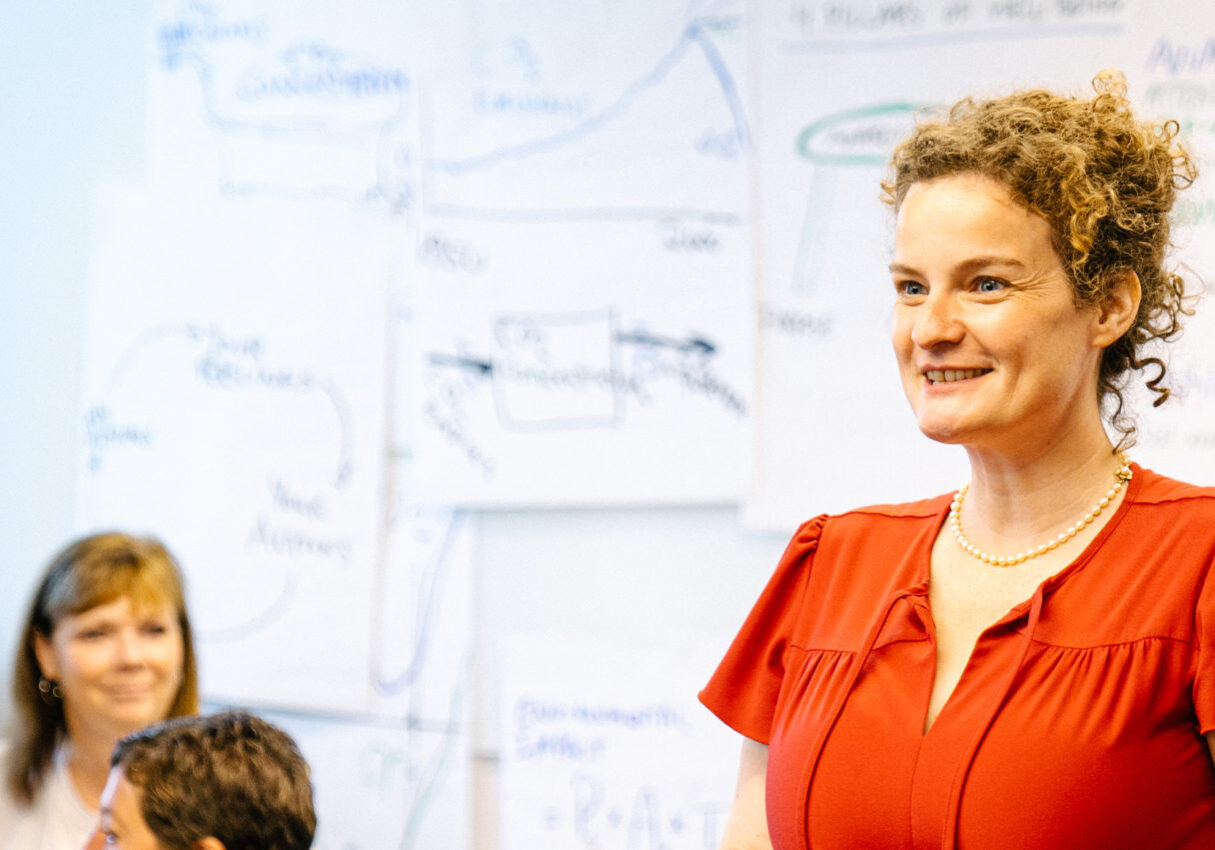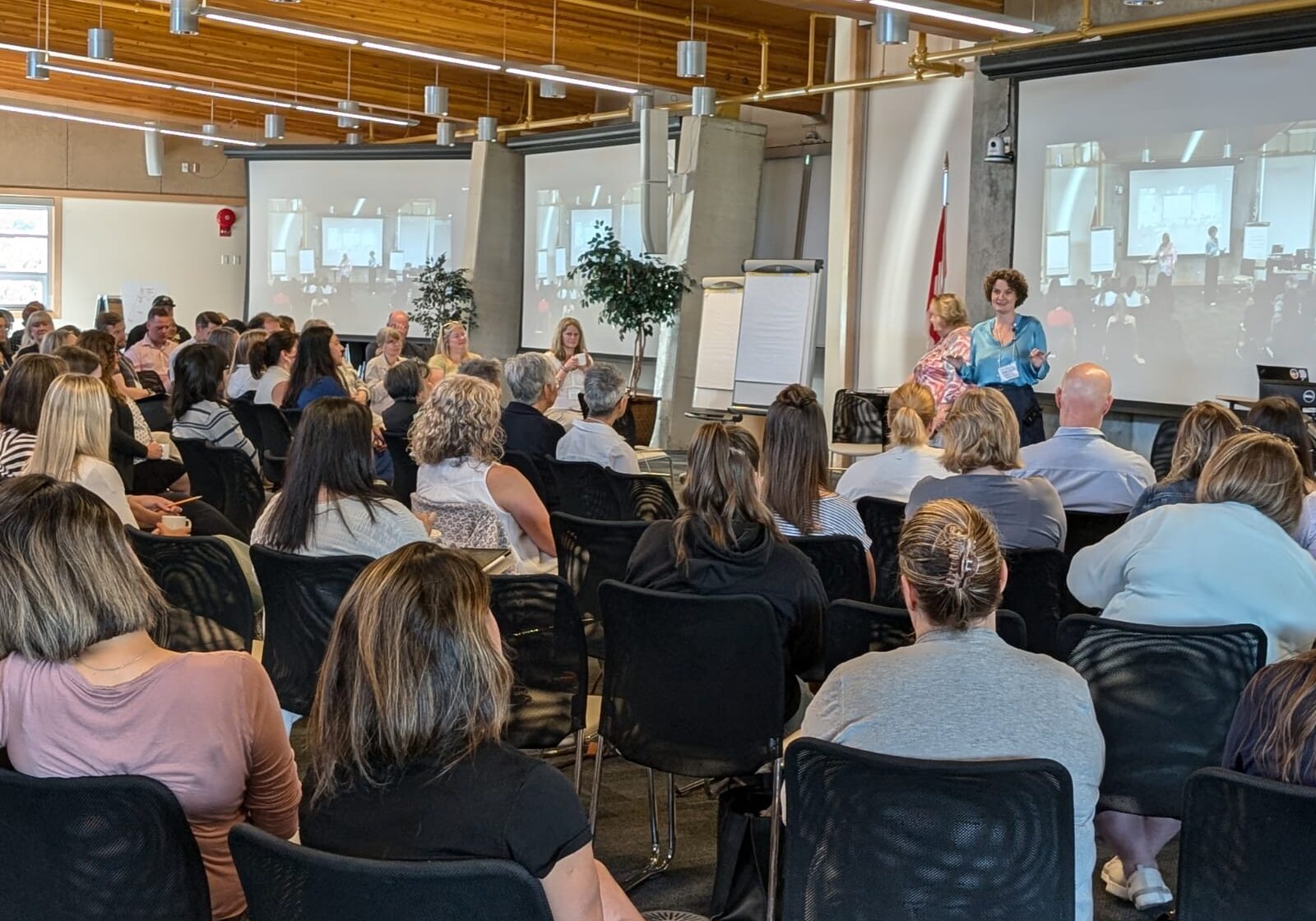IN-PERSON ONLY
Foundations I - Introduction to Compassionate Systems Framework in Yokohama, Japan (Bilingual facilitation) | March 2026
March 9-11, 2026
9:00 am - 5:00 pm
Location: Yokohama International School | Yokohama, Japan
2026年3月9日〜11日
午前9時〜午後5時
会場:横浜インターナショナルスクール(日本・横浜)
Facilitated by Mette Boell
ファシリテーター:メッテ・ボル
This workshop is offered in partnership with Yokohama International School.
The workshop will be facilitated in two languages: English and Japanese.
本ワークショップは、横浜インターナショナルスクールとのパートナーシップにより開催されます。
ワークショップは、英語と日本語の二言語でファシリテーションされます。


This hands-on workshop offers a practice-based introduction to the tools and approaches that have been developed in support of “Compassionate Systems Change”. The compassionate systems framework incorporates learning tools in development for several decades from the diverse fields of living systems change, organizational learning and systems dynamics, contemplative traditions, neuroscience and social and emotional learning, and is now being used at both the level of classroom innovations in schools and education systems around the world, as well as for governance, healthcare and diverse organizational settings supporting collective leadership in shaping a more generative culture. We conceptualize compassion as an essentially systemic property of mind: to cultivate compassion is to be able to appreciate the systemic forces that influence people’s actions. It is the capacity to hold paradoxes – to see and sense the larger system with all its interdependence and interconnectedness and all the unintended consequences of human behavior – without judgment, but with real care for the system and everyone involved in it, in support of human and planetary flourishing.
この実践型ワークショップでは、「コンパッショネート・システムズ・チェンジ(Compassionate Systems Change)」を支えるために開発されてきたツールやアプローチを、体験的に学ぶ入門的な機会を提供します。コンパッショネート・システムズ・フレームワークは、数十年にわたって発展してきた多様な分野――生きたシステム変容(living systems change)、組織学習、システム・ダイナミクス、マインドフルネス、神経科学、社会情動的学習(SEL)――の知見を統合しています。現在では、世界各地の学校教育における革新だけでなく、ガバナンス、ヘルスケア、その他の多様な組織においても応用され、より創発的で生成的な文化を育む集合的なリーダーシップを支えています。私たちは「コンパッション(思いやり)」を、本質的にシステミックなマインド特性として捉えています。コンパッションを育むとは、人々の行動に影響を与えるシステム的な力を理解する能力を養うことです。それは逆説的なものを抱えながらも、評価や判断を超えて、人間行動のもたらすすべての相互関係性や意図せぬ結果を含む「より大きなシステム全体」を見渡し、感じ取り、そのシステムと関わるすべての人々に対して真にケアをもって向き合う力――人間と地球の繁栄を支えるための在り方――なのです。
The work for compassionate systems change was initiated in education in support of the young people throughout different cultures and circumstances who are confronted with the complex contradictions of the interconnected, interdependent systems in our world – we are in a global poly-crisis, the established alliances and old world structures are deteriorating and we see unprecedented high rates of depression, anxiety and mental distress among children and adults alike. If we are to shape a different future than the one we are currently heading towards, we must have the well-being of our future citizens at the heart of society. This sparked our original investment in compassionate systems change in education for the past decade – but now it is clear to us that focusing on education alone is not enough. Societies and communities must come together to hold our children’s safety and wellbeing at heart, we aspire to be allies of educators in the support of greater geopolitical stability sparked by human decency, kindness and a profound sense of interconnectedness.
コンパッショネート・システムズ・チェンジ(Compassionate Systems Change)の取り組みは、もともと教育分野から始まりました。それは、文化や環境の異なる世界中の若者たちが、相互に結びつき、関係し合う現代社会の複雑な矛盾に直面していることへの支援を目的としていました。私たちは今、グローバル・ポリクライシス(多重危機)の時代に生きています。従来の同盟関係や社会構造は崩れつつあり、子どもから大人に至るまで、これまでにないほどのうつ、不安、精神的苦痛が広がっています。もし私たちが、今の延長線上とは異なる未来を形づくりたいのであれば、社会の中心に「次世代の幸福とウェルビーイング」を据えなければなりません。この認識こそが、過去10年にわたって教育分野におけるコンパッショネート・システムズ・チェンジへの努力を惜しまなかった理由です。しかし今、教育だけに焦点を当てるだけでは不十分であるということに、私たちは気づいています。社会とコミュニティが共に、子どもたちの安全と幸福を真に大切にすることが求められています。私たちは、教育に関わる同盟者として、人間の良心と思いやり、そして深い相互関係性の感覚から生まれる地政学的な安定と社会的調和を支えることを志しています。
An essential question for the future of education is how do we help students to reflect on the consequences of the poly-crisis – both locally and globally – to learn to deeply understand and respond mindfully and compassionately rather than just feeling overwhelmed by the complexity of these systems. The same is true for adults. With the growing interest in education in social and emotional learning (SEL) and mindfulness today, we feel it is especially timely to show how these can combine with skills in understanding systems and complexity to establish a cognitive and affective foundation for global citizenship that can work across age, hierarchical positions, ethnicity and culture.
これからの教育の未来にとって本質的な問いは、「どのようにすれば、学生たちがローカルおよびグローバルなレベルで進行する“ポリクライシス(多重危機)”の結果を省察し、複雑さに圧倒されるのではなく、深く理解し、思慮深く、思いやりをもって応答できるようになるのか」 ということです。これは、子どもたちだけでなく、大人にも同じように当てはまります。現在、教育の分野では SEL(社会的・情動的学習) や マインドフルネス への関心が高まっています。私たちは、まさに今こそ、これらの実践を システムや複雑性の理解スキル と統合することが重要だと感じています。そうすることで、年齢・立場・民族・文化の違いを超えて共有できる、認知的かつ情動的な「グローバル市民性(global citizenship)」の基盤 を築くことができると考えます。
The overall aim of Foundations I - Introduction to Compassionate Systems Framework is to advance leaders who foster collaboration for compassionate systems change across organizational and hierarchical structures. Such leadership is a key dimension to support the profound changes needed for schools and education systems to become truly relevant for today’s students and for society at large. Transforming systems is, ultimately, about transforming relationships among the people and institutions that shape how those systems function.
このプログラムの主な目的は、組織や階層の枠を超えて、コンパッショネート・システムズ・チェンジ(思いやりに根ざしたシステム変容)に向けて一歩踏み出すリーダーを育成することです。こうしたリーダーシップは、今日の生徒や社会にとって本当に意味のある学びの場へと学校や教育システムを進化させるために不可欠な要素です。システムの変容とは、究極的には、そのシステムを形づくる人々や組織のあいだの「関係性」を変容させることに他なりません。このプログラムでは、参加者自身の内面的な成長と、チームや組織の協働関係の質を高めることの両面から、持続的なシステム変化を実現するための基盤を築いていきます。
Registration Deadline:
Please register by February 20, 2026
* As seating is limited, we encourage you to register at your earliest convenience.
登録締切:
2026年2月20日までにご登録ください。
※席数および、教育関係者への特別受講料の席数にも限りがありますので、できるだけお早めにお申し込みください。
Questions: Please contact Miho Kito at mkito@systemsawareness.org for any questions.
お問い合わせ先:ご不明点がありましたら、Miho Kito(mkito@systemsawareness.org)までご連絡ください。
